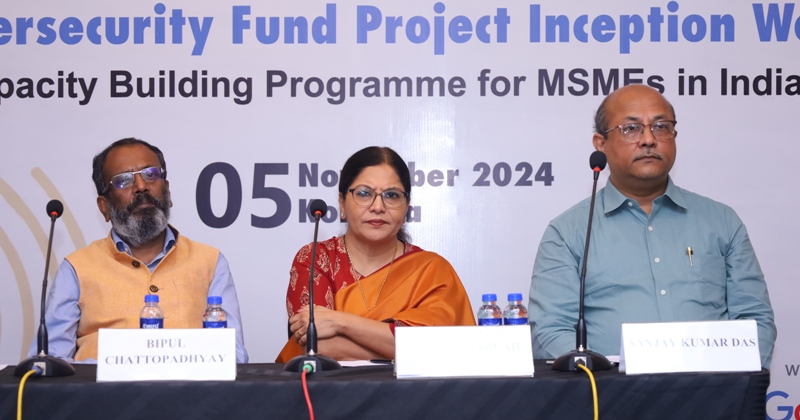Guwahati: The Asia Foundation with support from Google.org is launched the APAC Cybersecurity Fund (ACF) Project in India.
The ACF Project aims to strengthen the Asia-Pacific region’s cybersecurity ecosystem by equipping micro and small businesses, nonprofits, and social enterprises with skills to navigate the internet safely and confidently.
Through training, the project works to improve the targeted sectors’ awareness and knowledge of basic cyber hygiene.
The project, spanning across 12 countries, aims to equip local communities via upskilling tools and cyber clinics to protect against online risks.
The project’s initiatives for regulatory reform include policy dialogues and localised research on cyber threats. Regionally, the programme aims to upskill up to 600,000 individuals from 300,000 underserved orgs.
ALSO READ: Assam: Stakeholders unite to save rhinos at Pobitora Wildlife Sanctuary
In India, the Proposed intervention aims to capacitate 90,000 trainees from medium, small and micro enterprises, with 50% being women led ones.
CUTS International is the implementation partner for this initiative in 10 Indian states that are, Rajasthan, West Bengal, Assam, Arunachal Pradesh, Manipur, Meghalaya, Mizoram, Sikkim, Nagaland, and Tripura, covering over 20,000 MSMES.
Bipul Chattopadhyay, Executive Director of CUTS International stated that in India, companies are increasingly entering digital business, including cross-border digital transactions. One major area is personal data protection, which covers both individual and business data. Data protection must align with business protection.
“Another key area is data storage. India is seeing growth in data storage, with a move towards cross-border data storage. This includes not only bilateral but also regional arrangements, raising considerations around personal and official data,” Chattopadhyay continued.
“Our project lays a strong foundation for gathering input that can be leveraged regionally. It’s essential to take note of ground-level insights before gathering data. We are working across eight traditional states in India, with representatives participating in today’s hybrid meeting, both in person and online,” he added.
Nandita Baruah, Country Representative in India, The Asia Foundation, Delhi, delivered the opening remarks. She pointed out that MSMEs have a formal structure and it is important to embed cybersecurity training within it. Localising the curriculum in different Indian languages such as Assamese, Hindi, English and Bengali.
Sanjay Kumar Das W.B.C.S (Exec.), Managing Director of West Bengal Electronics Industry Development Corporation Limited (WEBEL), emphasised the critical need to reimagine cybersecurity as infrastructure security rather than merely application security. This paradigm shift in approach has far-reaching implications for how organisations and governments approach digital security in an increasingly interconnected world, he added.
Dr. Mou Sen, Joint Director, MSME Department, Government of West Bengal, provided a fresh perspective on the traditional definition of MSMEs, highlighting that India harbours 20-30 lakh single-person enterprises, primarily comprising skilled artisans and weavers who have devoted their lives to perfecting their craft.
She pointed out that these master craftspeople, including those working with conch shells in remote villages, have received Prime Ministerial recognition and achieved One District One Product (ODOP) status and GI tags for their exceptional work.
Despite significant efforts by state governments to promote these traditional crafts and their achievements, Dr. Sen emphasised that digital literacy and connectivity remain critical challenges.
She stressed that without proper digital integration, these talented artisans, continue to face limitations in reaching broader markets beyond their geographical boundaries, hampering their ability to secure a rightful place in the global marketplace.
Dr. Lalzirmawia Chhangte, Secretary, Mizoram’s Commerce and Industries department, noted that MSMEs are leveraging IT and artificial intelligence (AI) to enhance product diversity, branding, and marketing while simplifying operations and expanding reach.
The event featured the launch of the project’s web portal created by CUTS, hosts the training curriculum and delivered online training, and included technical sessions focusing on cybersecurity challenges and solutions for MSMEs.
The programme will run from 2024 to 2026, marking a significant step toward building a more cyber-resilient MSME sector in India.















